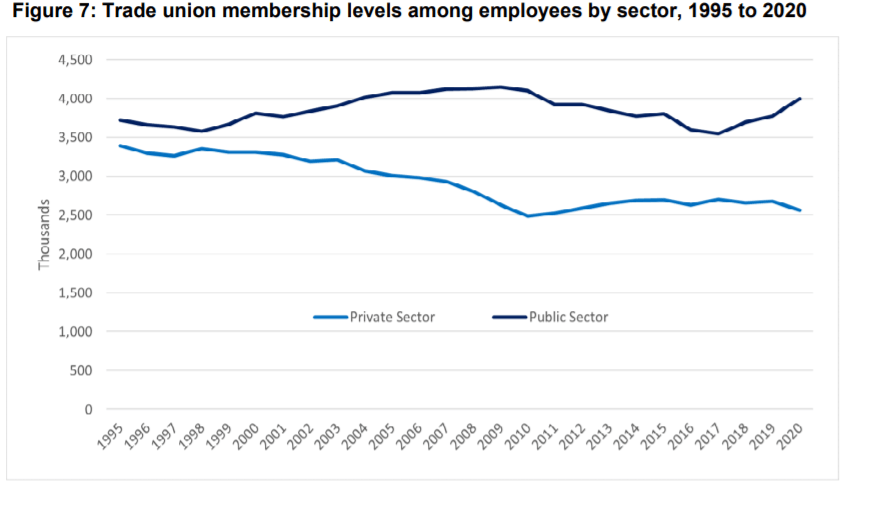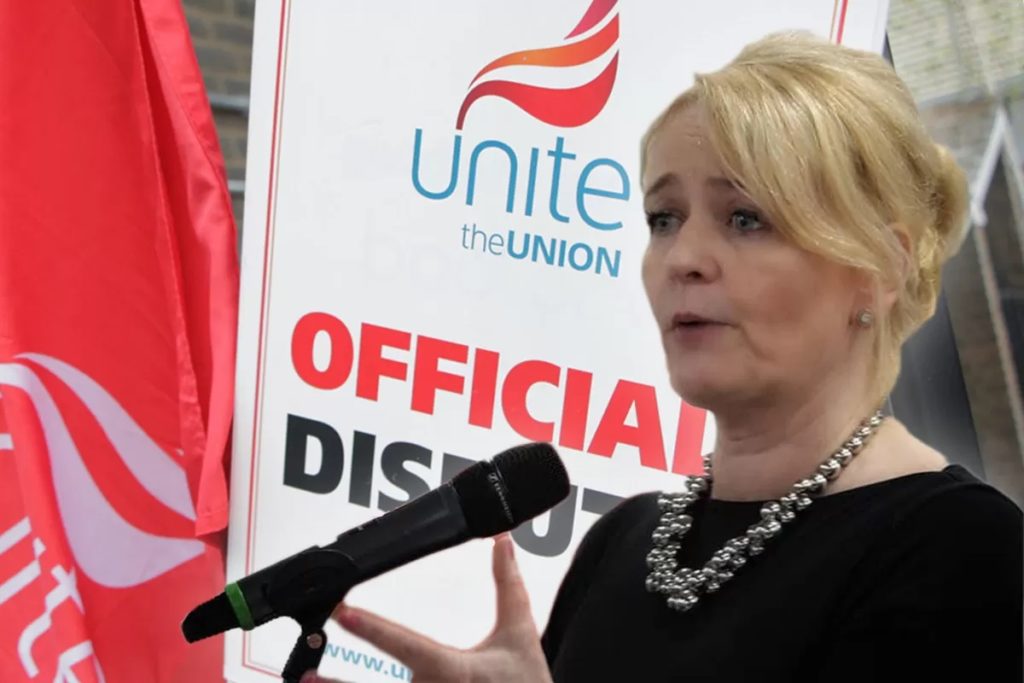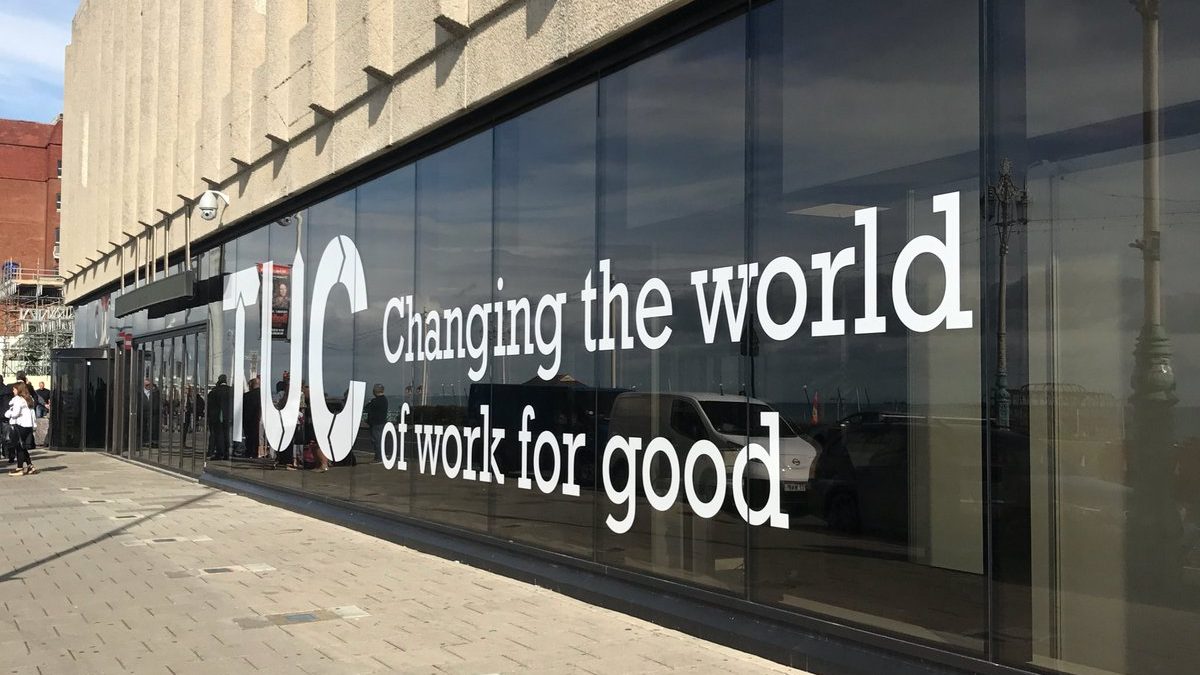By Ray Goodspeed (Leyton and Wanstead CLP)
The annual conference of Trade Union Congress takes place this week from Sunday. It could not meet at a more crucial time for the future of the trade union and working-class movement.
The Covid crisis has led to unprecedented challenges for working people, with many struggling to survive on 80% of wages, or losing their jobs entirely. Some employers have already used the pandemic as an excuse to slash wages and conditions in unscrupulous “fire and rehire” processes that have led to cases of resistance and some bitter disputes.
But that will be nothing compared to the onslaught to come as the “furlough” arrangements are ended and the subsidies withdrawn. Whole sections of industry are being kept alive by government support and are unlikely to survive its removal, leading to substantial rises in unemployment. Having lost their jobs, many workers will be faced with a £20 a week reduction in the level of Universal Credit and ever more punitive sanctions. Public sector staff, meanwhile, including those lauded as heroes so recently, will be subject to effective pay cuts as well as higher gas and electricity bills, and rises in National Insurance and, later, in taxes.
Much of the time of conference is likely to be taken up with these issues, sector by sector, including those around health and safety in the workplace, sickness procedures, and new issues connected with increased homeworking and structural employment changes. And that is apart from the urgent need to mitigate the effects of climate change and invest in green jobs, in order to avoid an environmental catastrophe. The individual unions, and the TUC as a whole, must adopt fighting polices and offer a clear lead to those workers looking to protect and preserve their interests
Battered
So how fit is the trade union movement to confront these challenges? 40 years ago, TUC conference had the same prestige as party conferences, broadcast live on the BBC. Trade union leaders were household names, more well-known than most politicians. But the intervening period has seen a decline in both numbers and prestige as unions were battered by mass unemployment, harsh neo-liberal economic policies, and repressive trade union laws. 6.5 million workers in the UK are now in trade unions, still a significantly large number, but half that of 1980.
During that period, some unions prioritised services such as cheap insurance, holiday discounts and individual legal advice over leading a militant fightback. Many put their faith and trust instead in European Union regulations to try to rein in the excesses of Tory governments.
But the time for this kind of passive trade unionism has come to an end. There are some signs of recovery. A small but consistent rise in membership has happened since 2017 (see here for these and other statistics up to last year) from 23.3% of the workforce to 23.7% in 2020. At least the rot has been stopped!
New women members
Strikingly, this increase is mainly driven by new women members, up from 25.6% to 27.2%, while the rate for male workers has actually slightly fallen to 20%. There is also a variation between the nations and regions of the UK with the proportion of unionised workers being much higher in Northern Ireland (32.7%) and Wales (31.9%) and generally higher in Scotland and the north of England than elsewhere. Union density among black workers is slightly higher than among white or Asian workers.
But there are areas of real weakness that need to be addressed. 75% of union members are over 35 (compared to 63% of workers in general). Trade union membership is concentrated among middle-income workers, earning between £250-£999 per week, and those workers who have worked for the same employer for 10 or more years. It also includes high numbers in professional occupations.

But the biggest difference lies between the public sector, where union membership stands at 4 million (51.9%) and is rising, and the private sector membership of 2.58 million (12.9%) which is falling. Union membership in the private sector is now back down to almost equal the lowest figure, from 2011.
Vital task
Clearly, then, a vital task is to recruit private sector workers, including those whose jobs are less secure, or temporary or subject to fake “self-employment”; the lower paid; or who are generally younger. Unions cannot afford the complacency of just representing their existing members.
They need to go out and actively organise other, new groups of workers, recruiting them during the struggles. Old practices such as refusing to represent workers who have only just joined need to be abandoned. Membership needs to be cheaper. It needs to be flexible, allowing people with two or three jobs or constantly changing jobs, to carry their union card with them.
This approach has proved to be increasingly successful for the new smaller unions, not part of the TUC, that have sprung up or re-invented themselves over the last few years, such as United Voices of the World (UVW), the Independent Workers’ Union of Great Britain (IWGB) and the old “wobblies” – the Industrial Workers of the World (IWW).
Each of these have managed to organise completely fresh groups of workers who have never previously been organised and have scored some notable and impressive victories. The established mainstream unions need to unite their experience, power and money with this active, innovative, rank and file organising approach or risk losing out to less staid or hidebound organisations.
Healthy branches
Efforts need to focus on building rank and file branches based in workplaces, and rebuilding networks of staff reps/stewards. Without healthy active branches taking a full democratic part at every level, unions will not be fit to play the necessary role in resisting the coming attacks. Some parts of some unions have done this but there are still too many tired, routine paper branches that need revitalizing.
Unions representing people with the same employer need to co-ordinate their actions, or risk being picked off one by one by increasingly ruthless tactics. Those in the same sector need to co-operate more on planning joint campaigns of industrial action, however difficult it may be to work round Britain’s trade union laws.

The surprise election of Sharon Graham, as General Secretary of Unite, who based her campaign on taking on employers, reinvigorating workplace campaigning and building branches is a hopeful sign for the future, as was the sound defeat of Gerard Coyne. Similarly, the left victory in the National Executive elections in Unison may also have important implications for future struggles. It will be interesting to see the impact of these elections played out at the TUC conference.
The TUC needs to play an active role in co-ordinating campaigns between unions, both in building public support for their policies through publicity and demonstrations etc, and in working more closely together in taking on the employers directly.
Notable victories
Groups of workers have moved to resist attacks, and taken action, although the overall numbers of strike days lost remains extremely low (see here). There have been some notable victories, from bus workers and NHS staff in Manchester to bin workers in Bexley, but even when action results in a messy compromise, workers are experiencing taking industrial action and learning lessons for the future. There is currently a planned strike in Weetabix, and a strike ballot in G4S security company that may affect cash machines. Each small victory gives confidence to others.
Workers need to rely on their own strength and unity. Nothing was ever handed down out of employers’ generosity. Nor can the fightback be put on hold waiting for a Labour government, which not only seems unlikely in the near to medium term but which also, under the current leadership, seems to offer little to working people in any case.
Of course, a Labour government and the defeat of the Tories would be welcomed by socialists and trade unionists but it will take an upsurge in real working class struggles in workplaces and communities to take on and defeat the Tory attacks and to exert maximum pressure on the Labour Party to campaign for policies that further working-class interests.
This could form part of the wider campaign for socialist policies, to establish a society where the economy is commonly owned and run for the benefit of the majority, not in the interests of the few profiteers and parasites.



